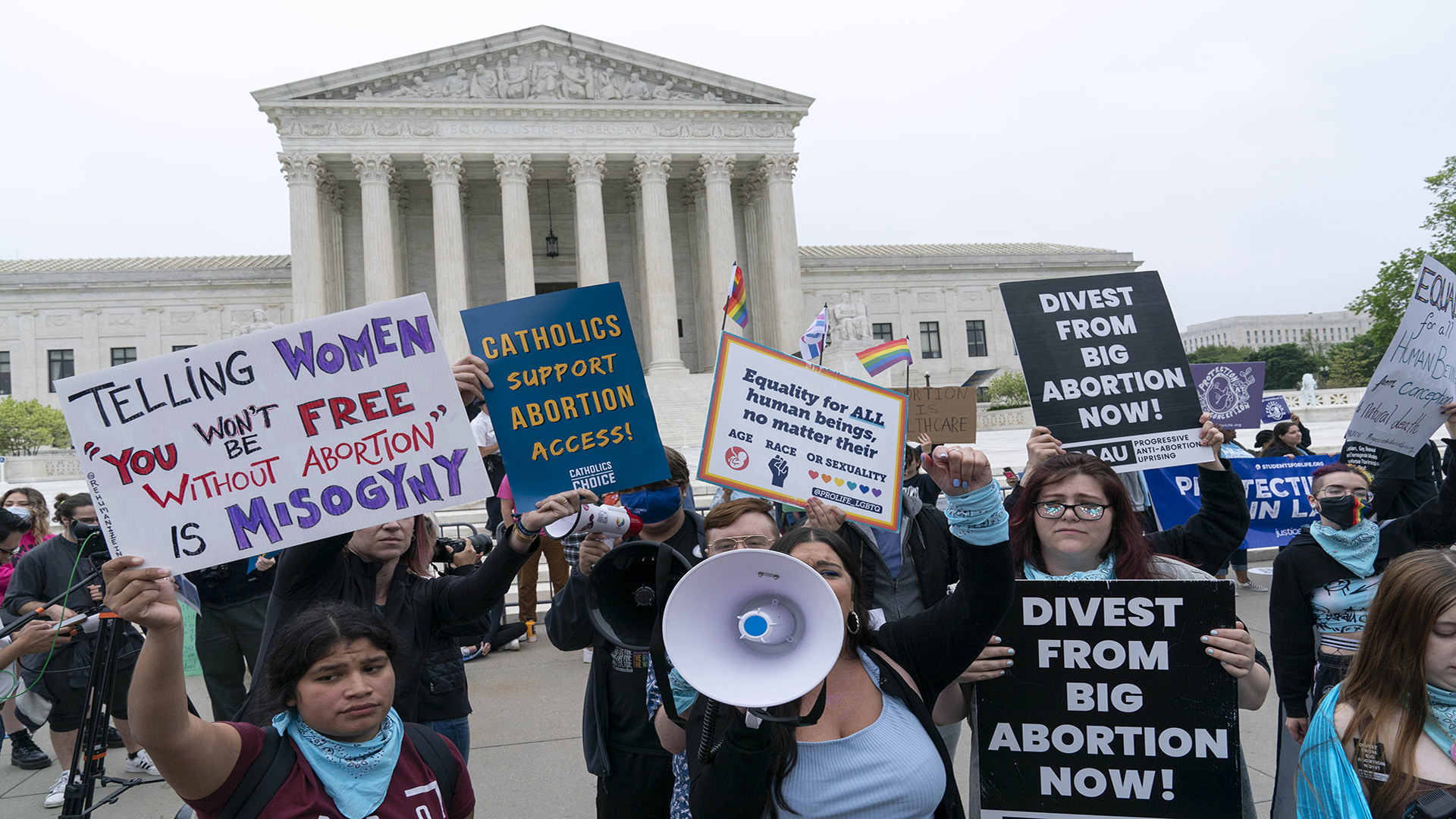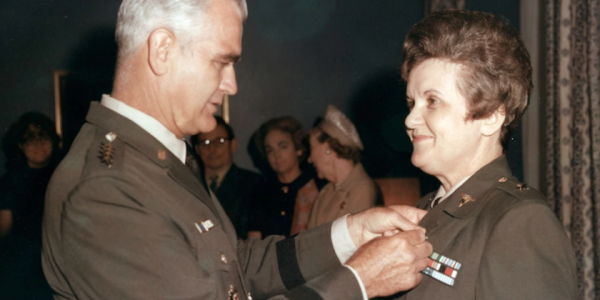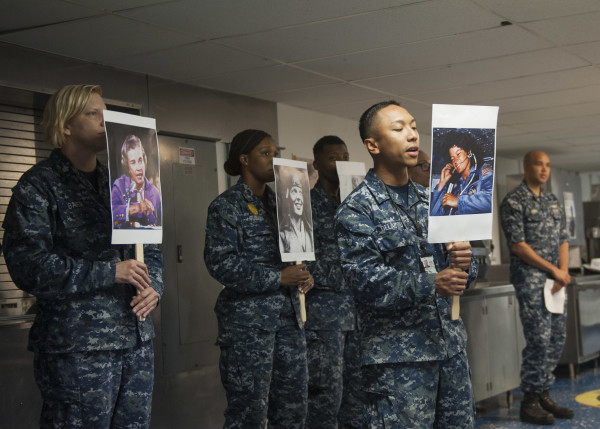News that the U.S. Supreme Court is likely to overturn its 1973 Roe v. Wade decision guaranteeing federal protections for abortion rights means that many female service members and military families could soon live in parts of the country where the procedure will be illegal.
The draft opinion, first obtained by Politico, says the 1973 decision to protect a woman’s right to abortion was “egregiously wrong from the start.” Written by Justice Samuel Alito, the draft opinion could become the ruling that overturns Roe as well as the Supreme Court’s subsequent 1992 decision Planned Parenthood v. Casey, which largely upheld abortion rights.
“We hold that Roe and Casey must be overruled,” Alito wrote in the draft opinion document. “It is time to heed the Constitution and return the issue of abortion to the people’s elected representatives.”
Thirteen states have so-called “trigger laws” in place, which would effectively ban abortions almost immediately upon Roe v Wade being overturned. Those include Texas, Missouri, Kentucky, Louisiana, and Oklahoma — all of which are the homes to military installations. According to Axios, the restrictions that would follow Roe being struck down by the Supreme Court would mean almost 30% of people would be more than 200 miles away from an abortion provider.
And while the final ruling won’t come for roughly two months, according to Politico, and justices can change their votes, there have already been efforts around the country to restrict or remove access to abortion.
Subscribe to Task & Purpose Today. Get the latest in military news, entertainment, and gear in your inbox daily.
On Tuesday, President Joe Biden called on lawmakers to pass a law that codifies women’s right to have an abortion, but such a bill would not likely have enough votes to overcome a filibuster in the Senate, and the Democrats could lose their majority in the House following November’s midterm elections.
If the Supreme Court ultimately overturns federal protections for abortion rights, Republicans in Congress could try to pass a national abortion ban next year if they have majorities in both the House and Senate, the Washington Post reported on Monday.
It is not immediately known how a Supreme Court decision reversing Roe or a nationwide abortion ban would affect the Defense Department’s limited abilities to provide abortions under certain circumstances.
Title 10 Section 1093 of the U.S. Code says that Defense Department funds and military medical facilities can only be used to perform abortions if a mother’s life would be endangered by carrying a fetus to term or if pregnancies are the result of rape or incest.
For both exceptions, physicians must certify that they believe the pregnancy was the result of rape or incest, or an abortion was performed to protect the mother’s life, according to the website for TRICARE, the healthcare program for service members, military families, and retirees.
TRICARE does not cover abortions for fetal abnormalities or psychological reasons, the website says.
When asked if service members and military families would continue to have access to abortions if Roe were oveturned, a Pentagon spokesman said the Defense Department cannot comment on “hypothetical situations.”
Nevertheless, female veterans say that a restriction to access would result in a number of challenges for women in the service. Lisa Pfeffer, an Army veteran of 14 years who served as a human resources specialist, said it raises the issue of what could happen to a woman in the service if they have a miscarriage.
“If a soldier is pregnant on post, but then they do another thing and she’s not, are they going to question her if she had an abortion or if she had a miscarriage?” Pfeffer said. It’s “very intrusive, and very private,” but the military is different in that they could “really ask those things.”
And at the end of the day, a “lot of people in command positions just don’t understand medical issues,” she said.
“I don’t think a woman, a female soldier, is going to be like, ‘Hey I need to take leave to get an abortion.’ I don’t think that would be acceptable … And even today, even though there are more females in the military, a lot of them are still men in those [command] positions, and they don’t quite understand, especially if they have some sort of religious background,” Pfeffer said. “It’s really hard to put into words.”
While female service members are more likely than civilians to have unplanned pregnancies, a 2017 study found that women in the military did not get much support from their supervisors or military medical providers when seeking abortions.
“Once I told them I wasn’t going to keep it, it was like, ‘OK, you’re on your own,’”an enlisted Navy sailor told the study’s researchers, according to NPR. “They couldn’t provide me any other help, even if that was something as simple as a reference.”
Should the Supreme Court overturn Roe v. Wade, the implications to service members would be profound, said Rep. Jackie Speier (D-Calif.).
“We’ve always known that Roe wasn’t enough to ensure accessible, affordable, and compassionate care, and it’s a fact that women in the military know all too well,” Speier told Task & Purpose. “Service members don’t have the luxury of choosing where they are stationed and military treatment facilities don’t provide elective abortions. That means the only option is to go off base, or even out of state, and pay out of pocket for an abortion.”
“Without Roe, there’s fewer options and the barriers women in the military face could increase tenfold,” Speier continued. “Abortion shouldn’t be a privilege and is a deeply personal choice that all people deserve equal access to.”
A reversal of Roe v Wade would open the question of what kind of legal issues female service members could find themselves in if they do decide to get an abortion. Would women be subject to action under the Uniform Code of Military Justice? Pfeffer wondered.
Joanna Sweatt, a national field manager for the progressive veterans’ group Common Defense said the move would “allow this interpretation of the law across the board, across religious sects … and the United States military is not the grounds for those types of conversations.” It would result in women in the military having “their health privacy violated,” Sweatt said, and create an environment where they are either “hiding the truth” or taking leave to have the procedure.
“And then still, it will be illegal,” Sweatt said. “And then what are the repercussions that happen afterward?”
Sweatt said she was a corporal in the Marine Corps when she decided to have an abortion. She’d had children young, and she and her husband had three kids already when she found out she was pregnant despite being on birth control just after the terror attacks on Sept. 11, 2001. And already, learning you’re pregnant in the military is not a “normal, happy experience,” she said.
“In the civilian world, when you tell people that you’re pregnant, they have this big party for you and they get all excited,” she said. “In the military, people just immediately start talking shit about you.”
She knew her unit was preparing to deploy, and frankly, she and her husband could not afford another baby. She said she told her commander about her decision; the people who “needed to know” knew, she said, but it was “still very traumatic and a violation for me.”
She went to a Planned Parenthood location on a Friday, so she had the weekend to recover. And while the care she received for the procedure itself was off-post, she said she went back through the military medical services on-post afterwards so they could monitor her care afterwards.
“I can’t imagine not even having that in place anymore, and how you’d even broach that conversation,” Sweatt said. “Or how a woman is looked at if she’s not married, or how traumatic it was in the instance of her getting pregnant.”
For women currently serving in the military as well as the families of service members, the end of federally protected abortion rights would be extremely dangerous, said former Marine Sgt. Erin Kirk, co-founder of the advocacy group Not In My Marine Corps.
Kirk noted that the Defense Department has been unable to curb rising levels of sexual assault within the ranks, and now women in the military could soon lose the ability to have an abortion if they become pregnant as a result of such an assault.
“How many women in uniform are elected officials willing to kill because of this decision?” Kirk told Task & Purpose. “I would like them to answer this question: what is an acceptable number of suicides or death due to self-inflicted abortive measures is Congress willing to overlook in our military before they will act?”
If the Supreme Court reverses Roe, it would also lead to far fewer women joining the military or deciding to stay in uniform, argued Kirk. Military families are already concerned about being stationed in Texas and Florida after those states passed laws targeting gay, lesbian, and transgender children, she said.
“We are tired of fighting for basic human rights and to protect our families, while also standing up and serving to protect a country that refuses to protect us,” Kirk said. “I would encourage every young woman who is currently thinking of joining the military to not do so in protest until Congress acts to protect you in all ways during your service. We are done serving a country that doesn’t serve us.”
UPDATE: This story was updated on May 3 with a statement from Rep. Jackie Speier (D-Calif.).
The latest on Task & Purpose
- The Navy’s top enlisted sailor tried to lift the spirits of a beleaguered crew. He didn’t
- What this old Russian tank tells us about the invasion of Ukraine
- Navy’s top enlisted sailor tells crew dealing with string of deaths that his answers won’t ‘make you real happy’
- The Air Force is trusting the internet to name its ridiculous new cybersecurity mascot
- A military housing company kept committing fraud after pleading guilty to fraud, Senate report finds
Want to write for Task & Purpose? Click here. Or check out the latest stories on our homepage.

























